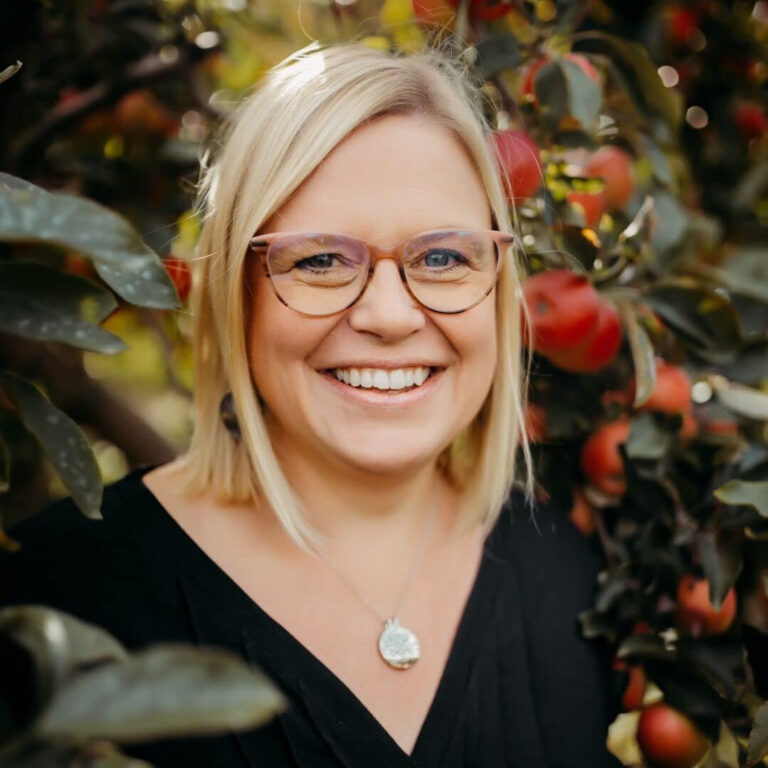My youngest son is the king of questions. His ten-year-old brain and his mouth seem to spin from the moment he opens his eyes in the morning until the half-minute it takes him to fall asleep at bedtime.
Last week, he took the opportunity during a swim in his grandma’s pool, to ask me, “What’s the worst thing you’ve ever done and not told Grandma?” Both he and my mother waited attentively for an answer.
Then, on the way back home, after several wonderings about the smattering of political signs we passed along the roadside, he asked me something I’ve been pondering ever since: “Mom, what is something you believe that maybe you could be wrong about?”
The question stopped me in my tracks. I hemmed and hawed as I tried to think of a belief I hold that wavers, something I would be willing to admit I could possibly be uncertain about. I debated grabbing for some low-hanging fruit, something to get me off the hook: like the claim that The Office is the best show to ever air on Network TV or that tacos are the perfect food. I would love to say I modeled vulnerability and openness in that moment, but the reality is that I stuttered and stammered as I tried to think of a doubt safe enough to share with my young son, fully aware that whatever answer I gave would lead to dozens more questions.

Later that night, during a gathering of friends that turned into more of a processing session around the Christian Reformed Church’s Synod actions earlier in the week, a friend grabbed a copy of Peter Enns’s new book, The Sin of Certainty, and read aloud this passage: “Preoccupation with correct thinking. That’s the deeper problem…It reduces the life of faith to sentry duty, a 24/7 task of pacing the ramparts and scanning the horizon to fend off incorrect thinking, in ourselves and others, too engrossed to come inside the halls and enjoy the banquet.”
Enns has got me thinking: what banquet, what joy and discovery, am I missing out on when I fail to welcome my son’s questions? What opportunities do I miss when I fall into the habit of packaging upright answers to give him rather than engaging him in dialogue? Although just a decade old, he doesn’t sound unlike other young people I’ve taught or spent time around — a young generation not interested in pat, black-and-white, Sunday School answers, but looking for adults willing to engage in authentic and messy dialogue. Delegate Heidi Sytsema addressed this at Synod when she said, “Our young people are not asking for clarity. They are asking for belonging.”

How strange that one of the most common responses to the past several years of uncertainty has been to double down on certainty. Rather than allow space for pain and fear, we witness a stubborn entrenchment into the mire of our own thinking and understanding. Rather than admitting that maybe we don’t know as much as we think we do — whether it be about the Bible, the forecast, or the future — we dig in our heels and turn our backs in resoluteness. We turn to the Bible for answers, instead lament, curiosity, openness, and wonder. We do this even as we claim to love and follow a man who responded to most questions, especially those from religious leaders, with stories and additional questions.
Over and over my mind returns to the time I was practicing yoga and I complained to the instructor, asking her to give me a pass from a hard pose: “Does it hurt or is it uncomfortable?” she asked.
Discomfort is no fun. Real dialogue — the kind that requires listening to understand rather than respond — isn’t often our natural tendency. And more often than not, I’ll admit I have to push myself to wade in the murkiness of my son’s questions. It’s tempting to turn up the radio and hope he’ll be quiet.
And yet, I wonder if I — if we, as a group of people who claim to be Reformed and always Reforming — need to stop gathering and promoting right answers. Maybe we need to give up on upholding the weight of supposedly high standards and instead spend that energy increasing our collective capacity for sitting in discomfort, for allowing space for the actual concept of faith, which hinges on allowing room for uncertainty. As Richard Rohr writes, “How strange that the very word ‘faith’ has come to mean its exact opposite.”
So, what is something you believe that you could possibly be wrong about? Mull it over with me — and together, let’s exercise enough faith to sit in our discomfort and avoid any easy answers.
Boy thinking outdoors photo by Sander Weeteling on Unsplash
Blank paper photo by Kelly Sikkema on Unsplash
Boy with a Bible photo by Samantha Sophia on Unsplash

